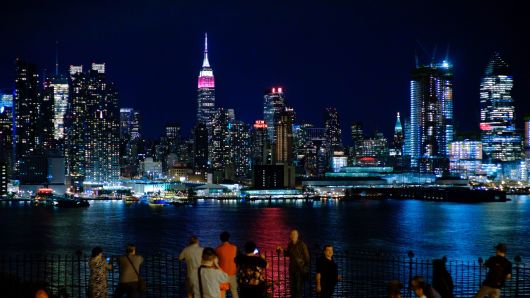Of all the industries in the modern global economy, few are as visible as real-estate. Iconic structures like the Empire State Building come to symbolize nations, and companies such as Trump Hotels can spread a brand around the world. These symbols and brands shape people’s perceptions and serve to facilitate cooperation between countries. As such, it comes as no surprise that some nations will take advantage of this economic marketing. A prominent trend persists in the global economy in which nations with poor human rights records purchase influential properties in foreign, usually Western, countries. Qatar, in particular, has spent over $22.5 billion in the United States (US) since 2015.
It is no secret in the international community that Qatar holds a poor human rights record. Much like its problematic Gulf neighbors, Qatar has implemented a code of severe punishments for crimes and places restrictions on women’s rights and on the rights of foreign workers. By continuing such controversial policies, Qatar seeks to clamp down on political opposition and maintain control of the population. These human rights abuses, among others, have raised concerns among many in the international community. To counteract this image, Qatar has engaged in a heavily-funded investment campaign over the past few years. Through this campaign, Qatar invests overseas and puts its name on some of the West’s most iconic buildings. This investment fund has effectively acted as a public relations campaign, and has ultimately served to distract the world from its human rights abuses.
The capital used in this worldwide public relations campaign comes from Qatar’s sovereign wealth fund. This wealth has been derived from petroleum exports, which have dominated the Qatari economy. This form of funding, however, is unsustainable as natural resource reserves inevitably will run out. With this in mind, Qatar seeks to diversify its income so that, when the time comes, it will not fall to economic ruin. While this sovereign wealth fund has been spread around the world, Qatar has made considerable investments in the United States and the United Kingdom (UK) specifically. Since Qatar began its economic diversification campaign, it has focused on strengthening economic ties with two of the most influential countries on the world stage.
The Qatar Investment Authority, which handles Qatar’s sovereign wealth fund, currently oversees approximately $338 billion in global assets. Many of the major holdings are located in the US and UK. In the UK, Qatari public and private investments include iconic landmarks such as Canary Wharf, HSBC Tower, and The Shard. They also own the popular UK department store, Harrods. Qatar has also raised its stake to 20 percent in International Consolidated Airlines Group, which owns British Airways, and purchased a 20 percent stake in London Heathrow.
Meanwhile, in the US, Qatari public and private investments also include a significant number of holdings. Qatar-backed investments in the US include Uber and a 10 percent stake in Empire State Realty Trust, which owns the Empire State Building. Qatar has even gone so far as to set up an office in Silicon Valley to facilitate further investment. Earlier this month, Qatari group, Katara Hospitality, bought the infamous Plaza Hotel in New York for $600 million. The Gulf state’s investments do not stop there. The Qatari media group, BeIN, has also recently purchased the US entertainment company Miramax Studios. Qatari investment has also previously made its way to Washington, DC. Back in 2011, the Qatari Diar Real Estate Investment Company supplied $700 million to Washington, DC to develop CityCenterDC – a large retail, office, and living space. The mayor at the time described the project as one of the largest of its kind in the US.
With such deep roots in the US, Qatar has found a great opportunity to solidify its ties to the West. Recently, Qatari businessmen have praised the election of Donald Trump as president of the US. It appears that the prospect of investing in the US has become even more promising in the last year-and-a-half. Qatar has even added a $6.5 million apartment, located in the Trump World Tower, to its portfolio of Western assets. President Trump has not divested from his holdings and stands to gain financially from such a purchase. Last December, a US federal judge dismissed an ethics lawsuit against this type of purchase, meaning Qatar is free to invest in any of Trump’s properties.
As this push towards closer economic bonds continues, the types of investments Qatar has made have diversified. One such investment was an offer for a one-off donation that came during the 2018 National Hockey League playoff games. Qatar offered to pay a $100,000 fee to keep the DC Metro open for an extra hour. This extension was during the heavily watched Game 4 of the Eastern Conference finals which reached record viewership. Ultimately, a deal between DC metro, Downtown DC Business Improvement District, and Qatar was reached and Qatar’s donation allowed hockey fans in DC to have easy transportation home after the game. The Qatari ambassador hailed it as a gesture of goodwill as a member of the local DC community.
The Qatar Investment Authority has strategically invested Qatar’s sovereign wealth fund in influential locations and paved the way for Qatari private investors to do the same. While economic ties may not be inherently problematic, it is fundamental to be vigilant of the political climate surrounding us. Influential investments by Qatar mustn’t obscure awareness of the very real human rights concerns in the Gulf state. The international community must always hold States accountable for their actions. Regardless of financial ties or economic investment, we must push our international partners to commit to upholding human rights.
Christopher Campbell is an Advocacy Intern at ADHRB





